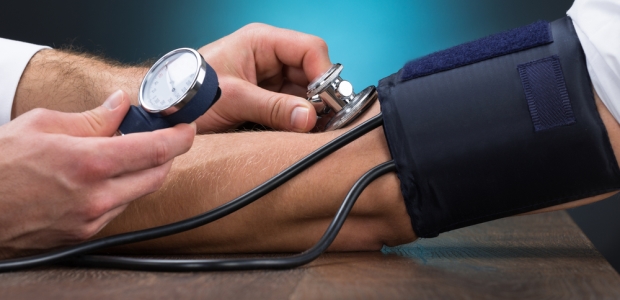
CDC Study Again Calls Attention to Uncontrolled High Blood Pressure
About 75 million Americans have high blood pressure, and about half of them don't have it under control, raising their risk of stroke and heart attack, CDC Director Dr. Tom Frieden reiterated Sept. 13.
A new study published in CDC's Vital Signs finds that about 70 percent of U.S. adults age 65 or older have high blood pressure, but only about half of them have it under control (less than 140/90), which puts the half who aren't controlled it at risk of heart disease, stroke, and early death. The study evaluated Medicare Part D enrollees older than 65 and found the rates of those not taking their blood pressure medicine is higher among certain racial/ethnic groups and those living in the "stroke belt" states that are generally in the South.
"The fact is that high blood pressure is a leading killer in the United States," said CDC Director Dr. Tom Frieden, M.D., MPH, adding that uncontrolled high blood pressure also may be connected with cognitive decline in older adults and is the leading cause of stroke. The only way to know if your blood pressure is high is to test it, and the only way for most people to reduce their high blood pressure is to take medication -- but not enough Americans with this problem are doing that, he stressed.
"Seventy-five million Americans have it. About half of this group don't have it under control," he said. About 1 in 6 people with high blood pressure aren't even aware of it. “Controlling is extremely important and can be done simply and cost effectively" through the use of medications that are available in low-cost formulations, Frieden added. "Critically, medications will be necessary for the vast major of people with high blood pressure. But they only work if they're taken."
The study found that more than 1 in 4 people in the study population, about 5 million people, weren't taking their blood pressure medication as directed. And Frieden said up to 25 percent of new prescripts for blood pressure medicine aren't filled in the first place.
"The results of this silent killer are heart attacks, strokes, kidney failure, and many other health problems," he said, adding that, if residents of the "stroke belt" states with high blood pressure had rates of control comparable to those of residents of states in the upper Midwest, more than 1 million more people would be taking their medications as directed.
"Although this doesn't often get headlines, it is crucially important. . . . There's a reason it is called the 'silent killer.' . . . Everyone needs to understand how crucially important medicines to control high blood pressure are," he said.
A few years ago, he said, CDC looked at what would be the single intervention that would protect the most lives in the country and decided it was blood pressure control. Discussing solutions, he said physicians and the entire health care team, including pharmacists, have a critical role to play in solving this problem, and that reducing co-pays as much as possible is important because any co-pay will reduce medication use, even by patients who are not resource constrained. He cited federal government efforts that include the Million Hearts initiative, which seeks to prevent 1 million heart attacks and strokes by 2017.